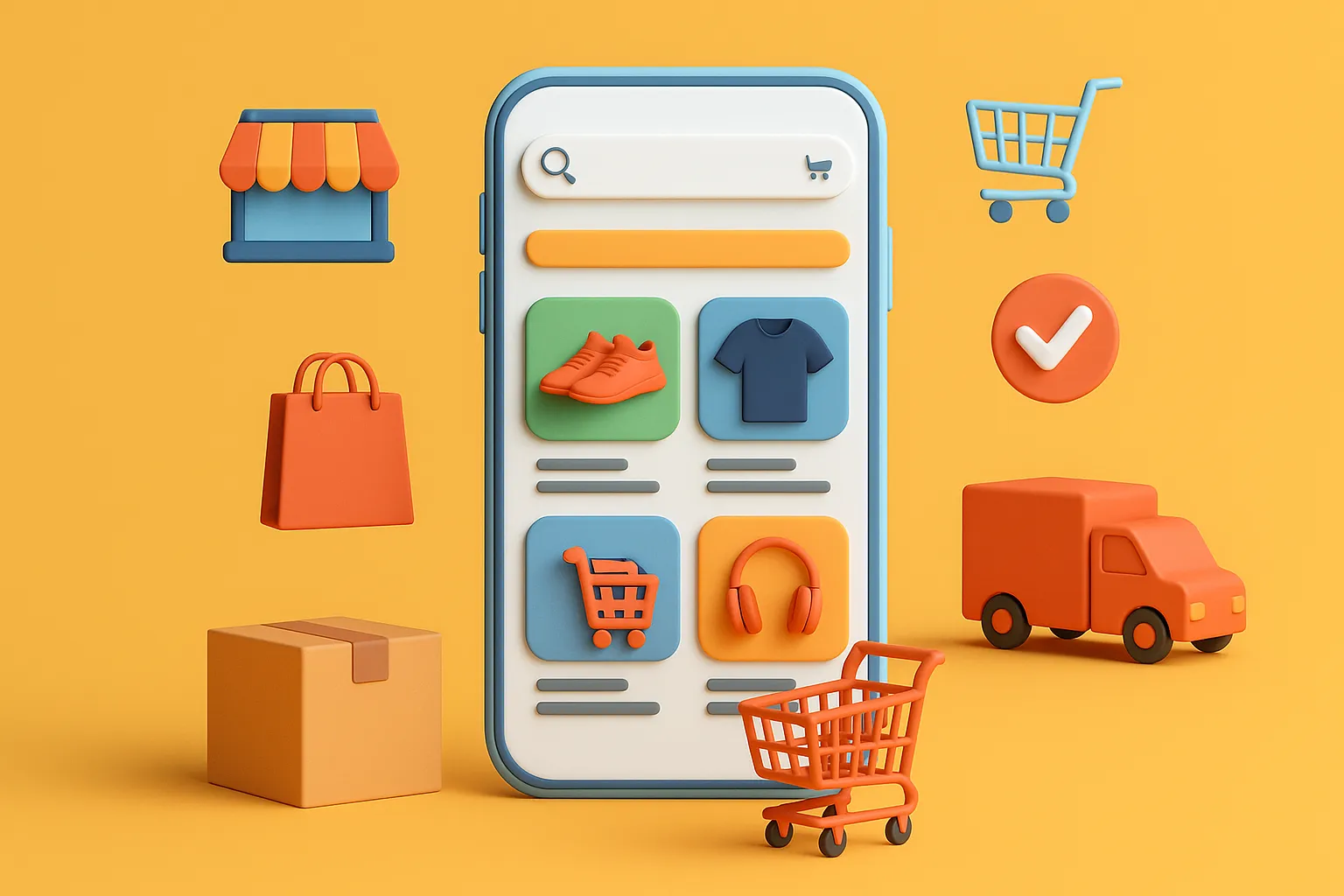Everyone wants to build the “next Amazon” — until they realize Amazon wasn’t built in a day. It took decades, billions of dollars, and an army of engineers. But what if you could launch a multi-vendor eCommerce platform with 80% of Amazon’s features, in just weeks, and a fraction of the cost?
That’s the power of a well-built Amazon clone scripts. Whether you’re a startup chasing your country’s next big digital mall or a retail brand looking to onboard thousands of third-party sellers, a clone script gives you the infrastructure without the headache.
At Miracuves, we’ve helped entrepreneurs do just that — go from idea to income, with robust, scalable eCommerce solutions designed to perform under pressure. If you’re planning to launch your own Amazon-style marketplace in 2026, this guide will show you where to start.
What Is an Amazon Clone Script and Why Should You Launch One?
An Amazon clone is a pre-coded eCommerce solution that replicates the core architecture, features, and functionalities of the Amazon platform. That includes the front-facing user experience and back-end seller management system.
Perfect for:
- Entrepreneurs launching country- or region-specific marketplaces
- Niche product platforms (electronics, books, baby care, etc.)
- Offline retail chains going digital with third-party vendors
- Startups targeting B2B eCommerce or private label brands
With a clone script, you skip the 2-year dev timeline and instead customize, deploy, and scale much faster.
Read More : Amazon Feature List: What Makes It a Global Giant
Key Features of a Powerful Amazon Clone Scripts

To compete in 2026, your Amazon-style app must be more than a store — it must be a complete ecosystem. Here’s what to look for:
1. Multi-vendor Marketplace Engine
Allow independent sellers to sign up, manage products, process orders, and receive payouts — all from a clean dashboard.
2. Customer Dashboard with Smart Filters
Enable filters by brand, category, ratings, price, availability, and shipping speed for seamless discovery.
3. Real-time Inventory Sync
Keep stock data current across multiple sellers, warehouses, and locations.
4. Order Lifecycle Management
From cart to checkout, dispatch to delivery, cancellation to returns — your app must handle it all.
5. In-App Wallet & Multi-Gateway Payments
Offer multiple payment methods, wallet top-ups, gift card support, and refund flows.
6. Product Reviews, Ratings & Q&A
Let customers leave reviews, ask questions, and interact with sellers to build trust.
7. Tiered Admin Control
Create different roles — super admin, category managers, customer support, and more.
Cost Factors & Pricing Breakdown
Amazon-Like Multi-Vendor eCommerce Platform Development — Market Price
| Development Level | Inclusions | Estimated Market Price (USD) |
|---|---|---|
| 1. Basic eCommerce Marketplace MVP | Multi-category product listings, seller registration, cart & checkout, basic search & filters, order tracking, reviews, user accounts, and a simple admin panel. | $50,000 |
| 2. Mid-Level Multi-Vendor Marketplace | Web + mobile UI/UX, seller dashboards, inventory sync, coupons, promotions, multiple payment methods, notifications, analytics, shipping settings, and basic dispute management. | $120,000 |
| 3. Advanced Amazon-Level Mega Marketplace | Multi-country support, dynamic pricing, FBA-style logistics workflows, advanced recommendation engine, subscription programs, loyalty systems, multi-warehouse management, enterprise scalability. | $240,000+ |
These values represent typical global development costs for building a full-scale eCommerce ecosystem like Amazon — including vendor, logistics, and high-traffic marketplace operations.
Miracuves Pricing for an Amazon-Like Platform
Miracuves Price: $2,899
This includes a complete multi-vendor eCommerce framework with customer storefront, vendor/shop module, catalog & inventory tools, discount engine, product reviews, payment setup, shipping logic, and a powerful admin backend — ready for full branding and deployment.
Note:
Comes with full non-encrypted source code, backend setup, UI configuration, admin panel setup, API integration, and deployment support — enabling rapid launch of your Amazon-style marketplace.
Launch Your Amazon-Style eCommerce Marketplace — Contact Us Today
Delivery Timeline for an Amazon-Like Platform with Miracuves
A typical delivery timeline is 3–9 days, depending on:
- Number of categories, vendors, and SKUs
- Required marketplace structure (single region or multi-region)
- Logistics & shipping configuration
- Monetization (commissions, subscriptions, promotions)
- UI/UX branding & theme customization
- Payment gateway + notification integrations
Tech Stack
Built using PHP, offering strong scalability, secure transactions, modular seller onboarding, efficient product management, and the stability needed for large, multi-vendor marketplaces.
Read More : Business Model of Amazon in 2025: How the E-Commerce Giant Earns, Scales, and Stays Ahead
Why Multi-Vendor Marketplaces Still Win in 2026
It’s not just about competing with Amazon — it’s about owning a vertical, dominating a region, or curating a niche. Amazon can’t serve everyone, everywhere, with local care or specialized offerings.
That’s where your opportunity lies:
- Hyperlocal marketplaces with fast delivery
- Niche eCommerce (vegan products, handcrafts, industrial supplies)
- Cross-border marketplaces targeting underserved regions
- B2B wholesale platforms with invoice-based purchasing
The global eCommerce market is projected to cross $8.1 trillion by 2026, and multi-vendor platforms are leading the charge. With an Amazon clone, you’re building not just an app — but a business ecosystem.
Challenges to Consider — and How a Good Clone Script Solves Them
Running a large-scale marketplace involves:
- Seller fraud or fake products
- Returns, refunds, and order abuse
- Payment delays or failed transactions
- Catalog duplication and SEO issues
Clone apps built by experienced dev teams like Miracuves come with safeguards:
- Seller KYC and verification
- Smart refund workflows
- Escrow and split-payment systems
- Catalog moderation and AI-based duplicate prevention
You get a marketplace that’s both powerful and protected.
What to Look for in an Amazon Clone Script Provider
This isn’t a basic website. You’re building infrastructure. So ask:
- Does the provider have proven experience in multi-vendor tech?
- Are apps performance-tested for thousands of users?
- Is the clone script modular and scalable?
- Are updates, support, and security included?
- Can I easily add regional languages, currencies, and shipping APIs?
Miracuves ticks all these boxes — and delivers a platform that can grow from startup to eCommerce empire without a rebuild.
Read More : Complete Guide to Starting an E-commerce App Business
Conclusion: Your Marketplace. Your Rules.
In 2026, shoppers aren’t loyal to platforms — they’re loyal to experiences. If you can build a platform that delivers speed, choice, and trust, you’ve already won half the battle.
An Amazon clone app isn’t about mimicking the giant. It’s about giving entrepreneurs the tools to create their own empires — niche, regional, or global.
At Miracuves, we help innovators launch high-performance app clones that are fast, scalable, and monetization-ready. Ready to turn your idea into reality? Let’s build together.
Still have questions about launching an Amazon Clone App? Let’s clear them up.
Can I add unlimited sellers and products?
Yes. The system is designed to support unlimited vendors, product listings, categories, and attributes.
How do I make money with an Amazon clone?
Earn through seller commissions, featured listings, ad placements, transaction fees, and private-label integrations.
Will the app work on both Android and iOS?
Yes. Miracuves delivers native mobile apps for both platforms alongside the web version.
How are payments managed?
The system uses secure multi-vendor payment gateways with escrow logic and admin-controlled release of funds.
Can I integrate with shipping and logistics companies?
Absolutely. Popular courier APIs and local delivery partners can be integrated based on region.
What if I want to add features like live chat or voice search?
No problem. The script is modular and extensible. Custom features can be developed or integrated post-launch.
Related Articles
- Best Alibaba Clone Scripts in 2025: Features & Pricing Compared
- Best Etsy Clone Scripts in 2025: Features & Pricing Compared
- Best Myntra Clone Scripts in 2025: Features & Pricing Compared
- Best Flipkart Clone Scripts in 2025: Features & Pricing Compared
- How to Develop an E-commerce and Online Shopping Platform App








